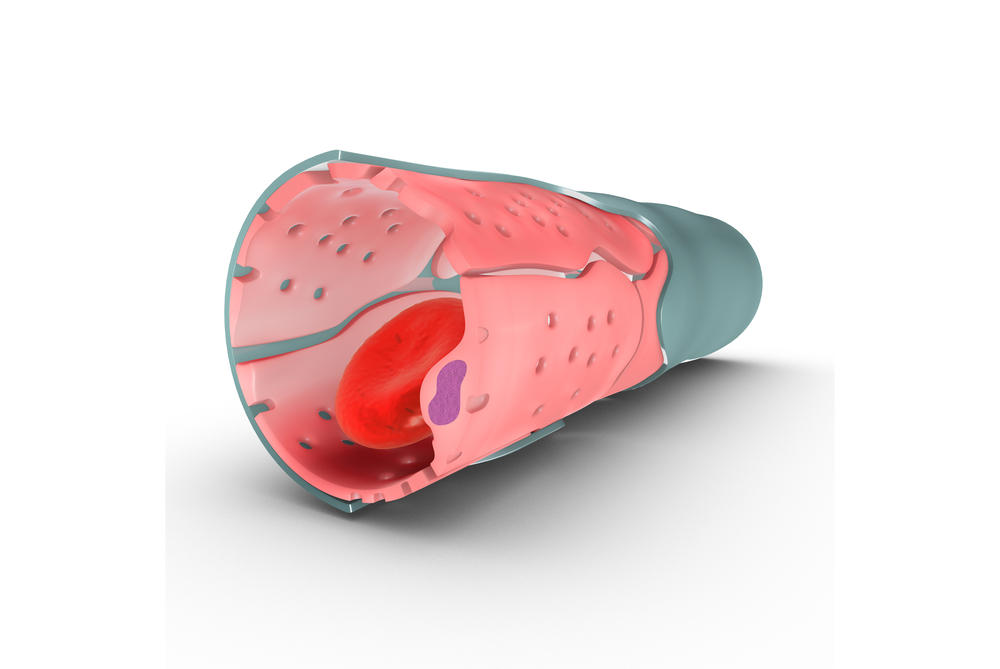Cell-based Therapy Tested in First PHS Patient Study
Written by |

In a new study entitled “Endothelial NO-Synthase Gene-Enhanced Progenitor Cell Therapy for Pulmonary Arterial Hypertension: The PHACeT Trial,” researchers performed the first human trial to investigate the therapeutic potential of endothelial progenitor cells in repairing the damaged vessels in pulmonary arterial hypertension patients who have failed to respond to standard therapies. The study was published in the Circulation Research journal.
Pulmonary arterial hypertension (PAH) is characterized by increased blood pressure in the lungs’ vasculature, escalating to life-threatening conditions such as heart failure. Its symptoms include shortness of breath, dizziness, and fainting. Recent studies with animal modes suggest that endothelial cells lining the interior surface of the lungs’ blood vessels, upon injury and ultimate death trigger PAH. The loss of endothelial cells may become a signal for proliferation of other vascular cells ultimately leading to vascular obliteration. These events lead further to the loss of vascular areas within the lungs.
Endothelial progenitor cells (EPCs) have been shown to play key roles in revascularization and repair in experimental models of hindlimb ischemia and myocardial infarction. However, their potential therapeutic role in PAH has never been addressed. In this new study, researchers performed the first-in-human trial, called the Pulmonary Hypertension and Angiogenic Cell Therapy (PHACeT) trial (NCT00469027), to investigate both tolerability and efficacy of EPCs in PAH. Specifically, the team administered an escalating dose of EPCs-expressing endothelial nitric oxide synthase, or eNOS, to PAH patients (the team had previously discovered that eNOS enhanced the remodeling activity of EPCs in a model of established PAH).
RELATED: Highlights on New Theory for Pulmonary Arterial Hypertension: The Metabolic Theory
Patients received 7 to 50 million cells in three doses delivered on consecutive days. The cells were injected into patients via a multiport pulmonary artery catheter into the right atrium. In total, 7 patients (5 women) with idiopathic PAH received treatment, which researchers discovered to be well-tolerated. Additionally, the team identified a short-term improvement, although no sustained improvement in pulmonary vascular resistance was detected. The team concluded that repeated administration of is probably necessary for a sustained effect. Nonetheless, even with this short-term delivery patients exhibited improvement in exercise tolerance and quality of life scores.
Further studies are required to confirm the eNOS-EPCs safety and determine the potential efficacy of this innovative therapy in PAH patients.



